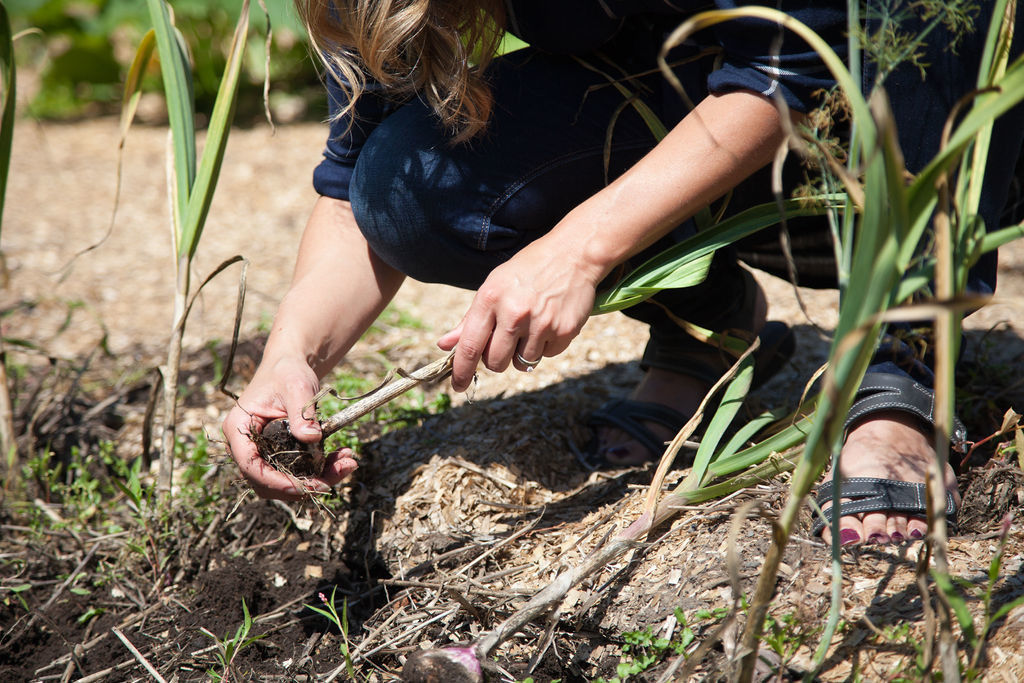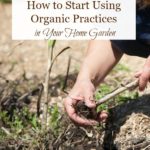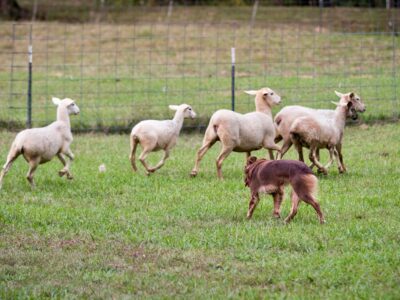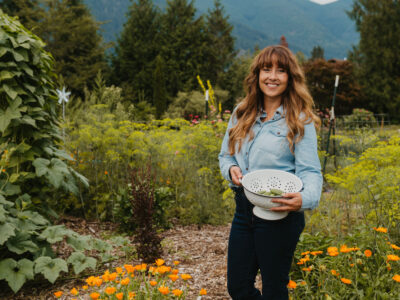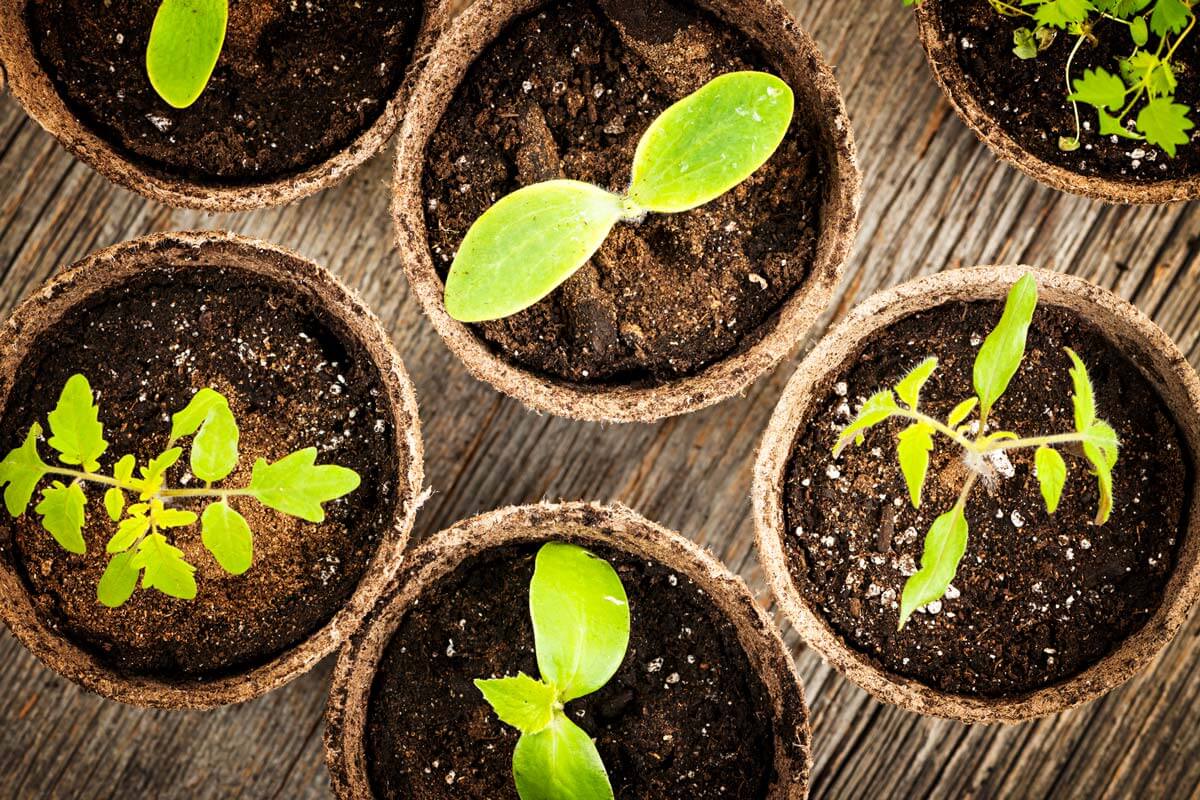Organic gardening was the only way our ancestors gardened, it's only been in the last 80 years that modern agriculture and big farms have moved away from these practices. I've been gardening for two decades on my own but was raised with a garden and I like to say we did organic before it was cool. Truth is, we didn't even know our garden was organic.
We didn't have the money to buy any of the sprays or pesticides or synthetic fertilizer and quite honestly, never needed too. Good news, neither do you. It's very easy for the home gardener to become organic, but some of you have asked what exactly does that mean. So let's dive in, shall we?
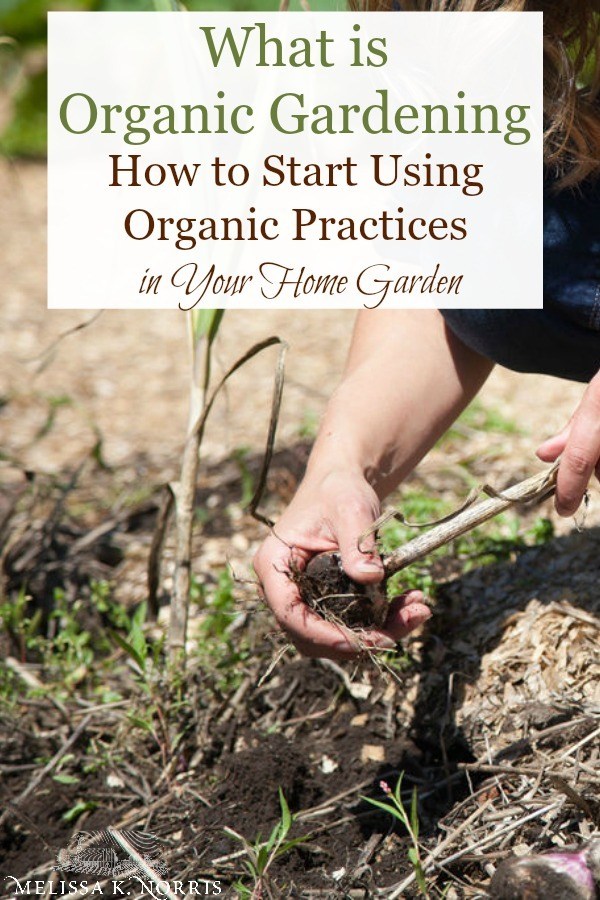
Listen in below to the full podcast, Episode #201 What is Organic Gardening and How to Start an Organic Garden at Home of the Pioneering Today Podcast, where we don’t just inspire you, but give you the clear steps to create the homegrown garden, pantry, kitchen and life you want for your family and homestead.
What does organic gardening mean?
Vegetable and fruit production – For something to be organic, you cannot use any synthetic pesticides, fertilizers, genetically modified organisms (GMO), GMO crops or seeds, or using ionizing radiation. (Which the later ionized radiation and GMOs aren't things home gardeners should be using anyways).
Animals (poultry, eggs, dairy) – One cannot use antibiotics and/or food growth hormones and the food that you’re feeding them is certified organic. In addition, the grain, hay, or grass that the animals eat is pasture required to be grown with organic practices, (no use of synthetic fertilizers, pesticides, herbicides, no GMOs, or ionization radiation.)
How do I become certified organic?
Many people that have a backyard garden generally do not go through the process of becoming certified organic because it is a very long process. During the 3 years that it takes to become certified organic one cannot use any synthetic pesticides, herbicides, fertilizer, GMOs. In addition, you have to look at the buffer around the property (runoff or spray).
If you’re interested in becoming certified organic as a seller or a farm, there are additional steps to the process that include: multiple inspections, documentation, and additional paperwork. Because people that are focused on solely getting our garden organic many of us will not go through the process of becoming certified organic as it is expensive and very time-consuming and if you're not selling the produce, then there's no need for the certification.
How do I build up organically healthy soil?
Once you’ve removed and established your home garden to be organic, now is the time to really focus on building up healthy soil. We can build up the soil by removing the things we consider harmful and adding good farming and soil techniques. Our produce and plants will only be as healthy as the soil as it’s drawing its nutrients from it.
Organic Seeds
Organic seeds are seeds that are harvested from plants that were grown using organic practices. All the seeds that I use in my garden are organic as I use these same practices, but if I’m looking to grow a particular variety, I purchase the seeds online, from a store, or nursery. Even if the seeds don’t state that they are certified organic, I’m ok with this as I know that they will be planted in organic soil. Therefore the plant will quickly become organic after a few seasons of me seed saving.
Starts
If you are purchasing starts from a nursery or store, and they are not organic, then the fruit that they produce will not be organic. Once the plant has been in organic soil for one year, then the fruit that the plant produces will then be considered organic.
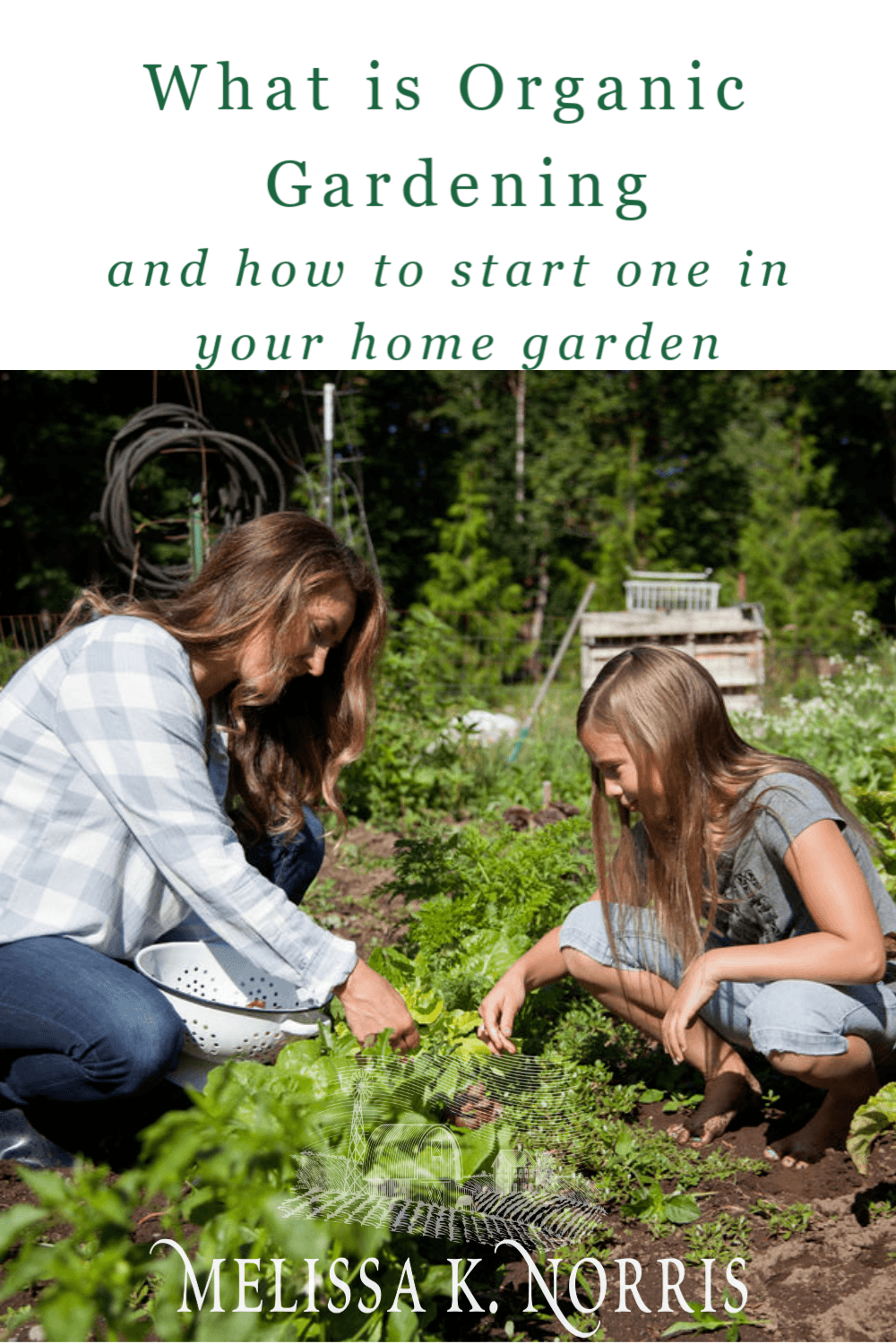
How to identify if your new property's soil is organic
Many concerns can arise when purchasing a new home or property. Knowing what practices have been used in the years prior is an important thing to consider. The best way to find out this information is to contact the previous owners to ask them what was used. If you are not able to obtain this specific information from the previous owner, then it would be recommended that you immediately take the proper step to get your soil in the healthiest conditions.
I hope this post helped answer some questions about what it means to have an organic garden and how to obtain this with the best practices for you and your family. If you are want to learn more about organic gardening sign up for my Organic Gardening Workshop! This is a workshop where I’m giving tons of tips, and you do not want to miss it!
For more organic gardening tips, check out the following posts:
- 10 Things Most Organic Gardeners Forget About
- 13 Basic Steps to Starting a Vegetable Garden
- 8 Common Mistakes Made by New Gardeners
- Science-Based Companion Planting Strategies for a Healthier Garden
- Using Vegetable Grow Bags in the Garden
- 11 Tips for Organic Pest Control for Vegetable Gardens
- Cabbage Moth and Slug Control with Organic Gardening Methods
- How to Get Rid of Bugs on Plants Naturally Tips that Actually Work
